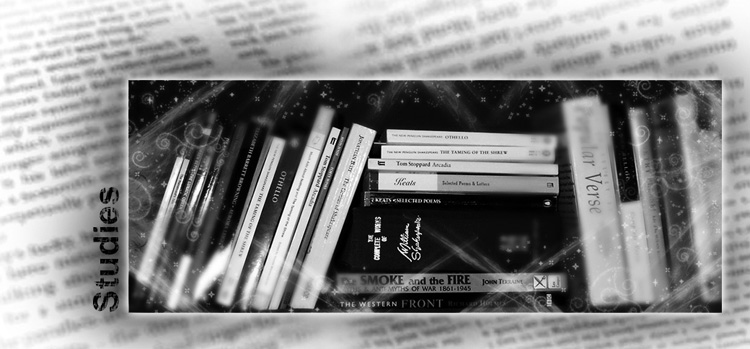The 'proles' in 1984 constitute the vast majority (more than 80%) of the populace, but do not have a great part to play in the novel, which is primarily concerned with what goes on within 'The Party'.
The masses, the proletariat (from which 'prole' is obviously derived), are supposed to be the prime beneficiaries of English Socialism. They are, after all, the majority, the working class. However, it is clear that in fact 'Ing Soc' is not for their benefit, and has brought no particular improvements to their lives. Winston muses that in the bad old days of capitalism, the workers were ruthlessly exploited, but this exploitation has not really changed ("Women still did work in the coal mines, as a matter of fact.") Only the precise nature of the authority over them has changed.
Though the proles are the majority, they are unimportant. The Party explicitly teaches that the proles are "natural inferiors who must be kept in subjection, like animals". There is no option of escape, for proles who show signs of too much intelligence are not elevated into the Party, they are simply eliminated. As Pimlott observes: "the relative freedom of working-class people is merely a symptom of the contempt in which they are held". It is quite simply unnecessary to exercise the same level of control over the proletariat that is maintained where Party members are concerned.
It is not only the Party which regards the proles as unimportant: the arch-enemy, Goldstein, dismisses them too, referring to the divisions of High, Middle and Low people, in which the Low are essentially destined to remain powerless. This attitude has much in common with the one Huxley shows in Brave New World—the lower castes are mindless enough to be satisfied with little, and can be relied on not to be troublesome.
Winston Smith recognises that only the proles have the potential for rebellion. Because the masses are relatively free, whereas his own life is rigourously controlled, they could seize the opportunity to rise up and overthrow the oppressive state. The 'swarming disregarded masses' could overwhelm the ruling minority if they acted consciously.
Unfortunately for Winston's hope, it is clear that the proles do not act consciously, at least, not in the sense he desires. The incident which sets him alive with hope turns out to be not the stirring of rebellion against the Party, but merely a frustrated reaction to the short supply of some tawdry saucepans. It appears that the ruling Party's (and Goldstein's) disregard for the proles is based in fact: they are not capable of rebellion, for their thoughts and aspirations are simply on too low a level for them to achieve the kind of goals Winston has in mind.
Orwell displays Winston's hopes for the proles as "a mystical truth and a palpable absurdity". Indeed, it seems to be both a common intellectual conceit, and true, that 'the masses' lack the capacity for inspired rebellion. Although Orwell himself believed in equality, he was obviously aware that most people will settle for what they have.
The proles within Oceania's society are therefore the unimportant majority. They also exist within the novel in order to provide a contrasting background for Winston's life. Their lives are straightforward and ordinary, but they have something Winston does not have. They are typified by the woman who sings a sentimental ditty as she hands out the washing—whom Winston eventually recognises as beautiful. She has not got much, but she is able to be happy, and to sing. Winston's life is so controlled, so spied on, so constricted that he lives in constant and justified paranoia. He cannot sing, because such behaviour would be outside the required parameters, and besides, he does not feel any urge to do so.
Winston recognises that the proles have retained ordinary, decent human emotions—whereas within his own echelon, children are encouraged to disobey and inform against their parents, love and sexual pleasure are being actively discouraged, and simple friendship is impossible because there is no honesty. In the atmosphere of constant fear, Winston's own emotions have become warped. Early in the novel, his reactions to the unspeakably nasty film he watches are callous and inhuman—but a prole woman stands up and shouts her objections. When Winston goes for a walk in the prole district, the inhabitants are sullen and suspicious, but nonetheless, someone takes the trouble to warn him of an incoming missile. A crowd forms round the resulting debris—but Winston's own reaction is to kick away the severed human hand as though it were merely rubbish. He is right to recognise that "the proles had stayed human", while he himself had to re-learn the "primitive emotions" which are natural to human beings.
Of course, the incident straight after the missile—men arguing over the Lottery, which Winston knows is a fake to provide false hope for the gullible—leads him back to disappointment again. Winston is unable to communicate with the proles. Their lives and his are very different, and his is in his way as limited as they are. He attempts to find out about the truth of the past by talking to an old man, but fails to understand what he is being told, because it is not delivered to him in the form he wants to hear. Little clues—like the old man referring to having worn a top hat (officially the 'badge' of the capitalist)—quite escape him. However, the same incident shows the reader that there are recognisable, 'normal' people in this ghastly world.
In essence, the proles provide a background and reference point, emphasising the horrors of IngSoc society, and demonstrating how easily ordinary people can put up with such horrors. Orwell contradicts the rather romantic belief that 'the masses' will liberate themselves by showing that in practice, the masses simply make the best of things—and achieve a reasonable measure of happiness too. They provide a brutal contrast to Winston's own life and circumstances.
